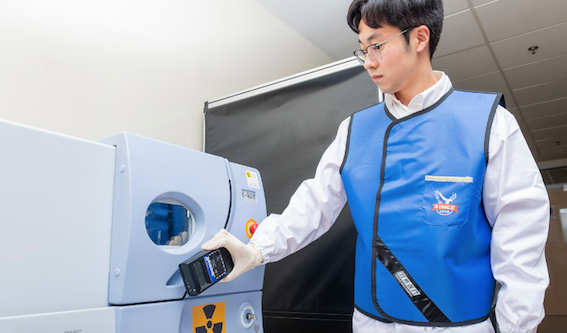
Researchers led by Nanyang Technological University, Singapore (NTU Singapore) have developed a new and precise way to treat the most common type of brain cancer using a substantially lower dose of X-rays than existing radiation treatments.
The method has been shown to curb the growth of brain tumours in mice, which paves the way for future clinical applications in humans.
Every year, more than 300,000 people are diagnosed globally with glioblastoma, the most common brain cancer among adults.
One way to treat it is by using radiation like X-rays to kill the cancer cells. However, radiotherapy can accidentally damage healthy cells near the tumour, leading to side effects. Radiodynamic therapy is a more recent treatment option under development, in which a patient is injected with specially made compounds that create cancer-killing free radicals when X-rays activate them. The dose of X-rays patients receive to activate the compounds is lower, about 20 to 30 per cent of the dose for conventional radiotherapy.
However, the anti-cancer compounds used in radiodynamic therapy, which contain heavy metals, do not target cancer cells accurately. They find their way into healthy cells and can be activated if they are close to where the patient receives the X-rays, leading to damage in the healthy cells.
The new research at NTU holds promise in addressing these problems to make radiation treatment for glioblastoma safer. This involves the development of a novel compound known as a molecular radio afterglow dynamic probe or “MRAP”. It comprises biochemicals and iodine and no heavy metals.
In the future, the team plans to improve the MRAP’s ability to target cancer cells and add cancer-curbing functions such as immunotherapeutic abilities that would help activate the immune system to destroy cancer cells and aid the body in fighting cancer recurrence.




